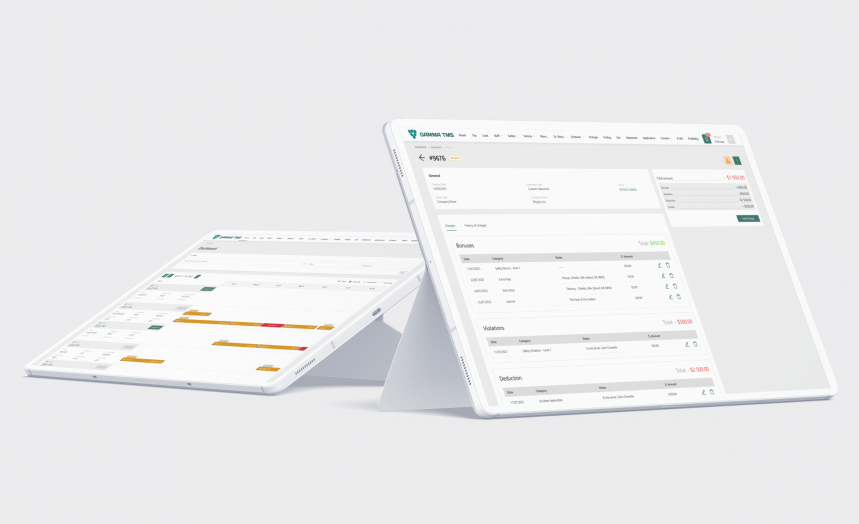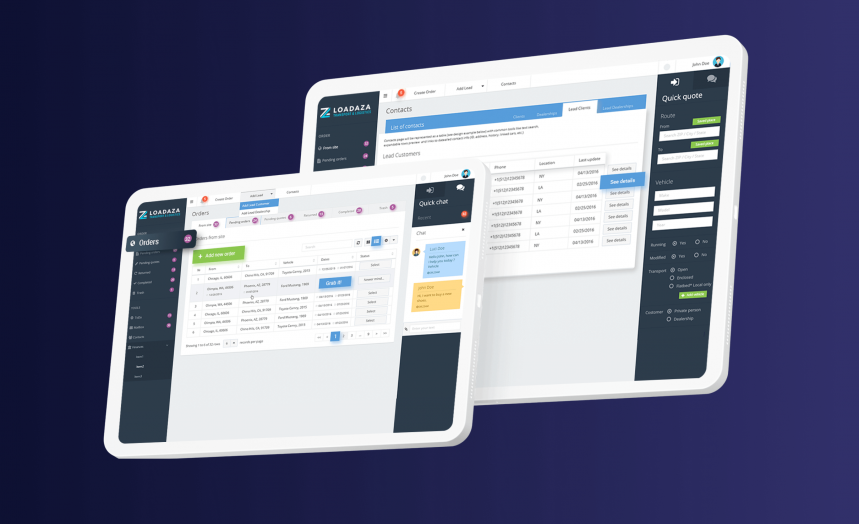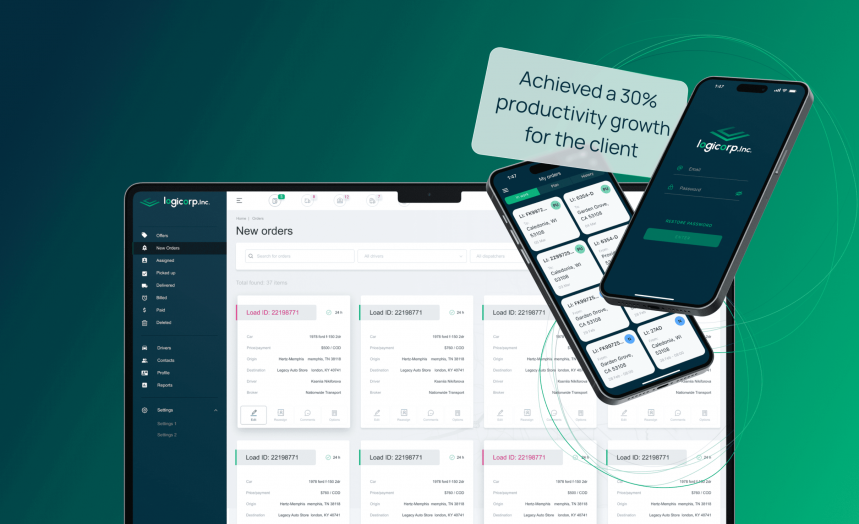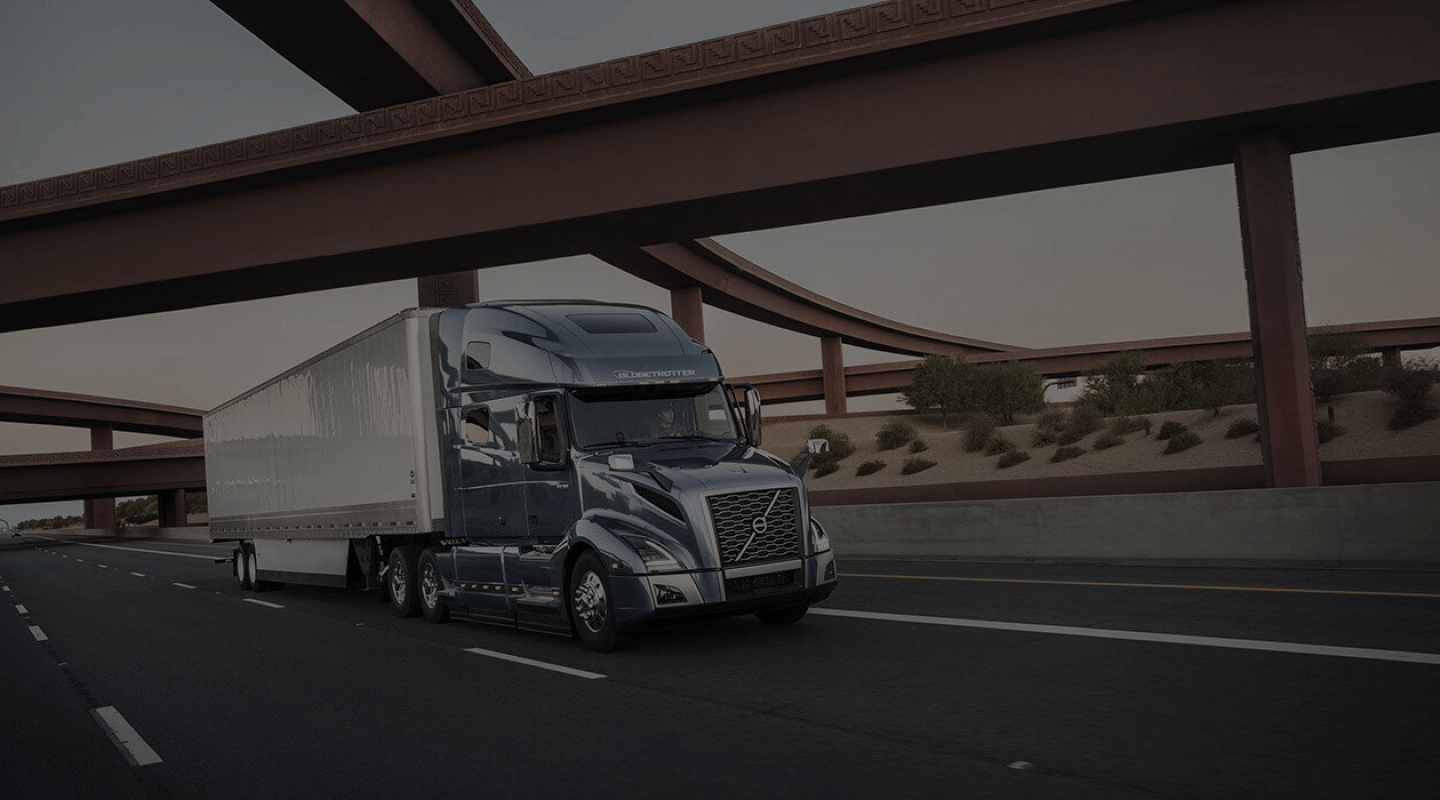
Custom TMS Software
Why Choose Custom TMS Software?
Custom TMS software by WEZOM is designed to optimize your transportation and logistics operations, providing automation, improved efficiency, and tailored solutions to meet your specific needs.
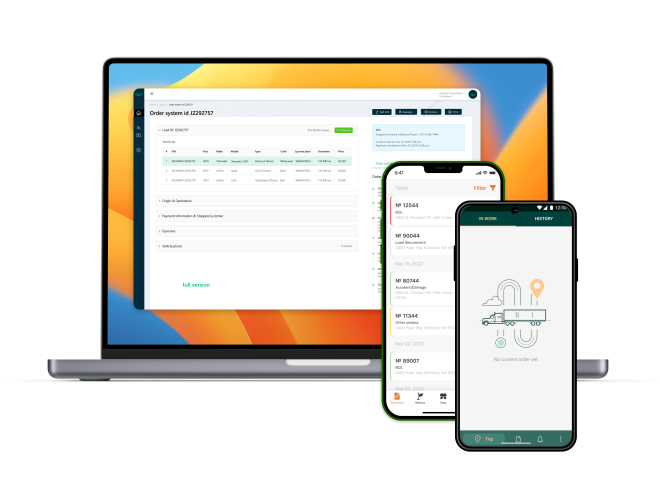
TRANSPORTATION
Transportation management is a key component of TMS. It allows you to track freight in real-time, manage shipments, and monitor transit time. The system provides visibility into the entire transportation process, allowing you to make informed decisions and ensure timely delivery.
COMMUNICATION
Effective communication is essential in transportation and logistics. TMS facilitates seamless communication among stakeholders, including shippers, carriers, drivers, and customers. The system enables real-time collaboration, status updates, and notifications, improving coordination and customer satisfaction.
CALCULATIONS
TMS includes robust calculation capabilities to handle various aspects of transportation, such as freight rates, fuel surcharges, distance calculations, and pricing. It automates complex calculations, ensuring accuracy and efficiency in financial processes.
Data-Driven
Being equipped with valuable, industry-specific data repositories to precisely identify and map out challenges within the trucking supply chain.
AI Enhanced
By analyzing these data sets, we can develop modules that streamline tasks like communication, order planning, and reporting, among other functions.
You may need this if...
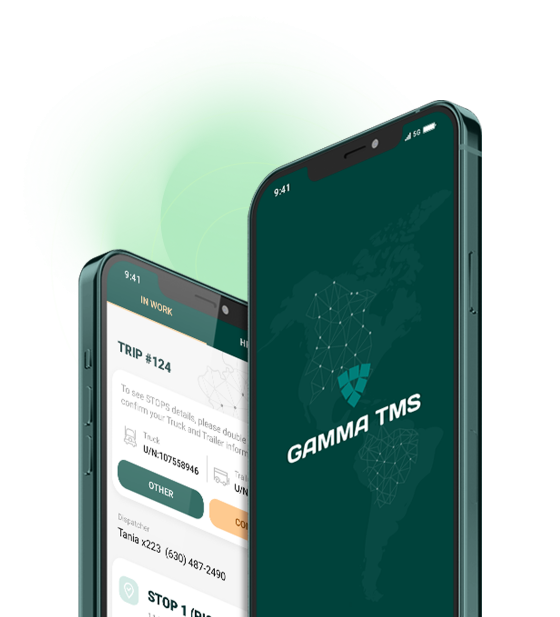
Implement our TMS for a transparent and reliable source of information across your transportation and logistics operations, ensuring every stakeholder has access to the insights they need for smoother operations.
Our TMS will be designed to meet your specific business demands, offering a customizable solution that fits your unique needs, eliminating the hassle of finding an off-the-shelf system that doesn't quite match up.
Incorporate advanced predictive and diagnostic analytics directly into your operations with our TMS, empowering your team with the data-driven insights needed to make informed decisions and optimize performance.
Replace your archaic legacy software with our modern TMS, designed to bring your transportation operations into the current era with state-of-the-art technology and capabilities.
Our TMS reduces the reliance on excessive manual back-end operations, automating routine tasks to increase efficiency and allow your team to focus on more strategic activities.
Achieve flawless integration with your existing in-house systems, including ERP, WMS, and fiscal platforms, with our TMS. It's built to work harmoniously with your current infrastructure, enhancing data flow and operational coherence.
Software Company WEZOM
Our objective is to develop a profitable and effective solution that helps clients to expand their businesses and overcome financial constraints. We are committed to exceptional service and utilizing all resources to bring the finest products & services.
We've Been Awarded Plenty for the Milestones We Have Achieved
Example
Integrations for Custom TMS
To optimize transportation strategies and guarantee complete oversight throughout all shipping operations, WEZOM suggests implementing the subsequent integrations:
What clients say

We chose WEZOM amongst other companies because they provided prototypes of future systems and we had a clear understanding of what the finished product would look like. We worked with the team on several projects, including the development of a CRM with adaptation for desktop and mobile versions, as well as the creation of a suite of server applications that are available on iOS, Android, and online. We are very pleased with the results and the flexibility of the WEZOM team.

I am very satisfied wit the work process and project management. Everything was clear, on time and I had nothing specific to add. Yes, we are satisfied with the result of the work and the product meets the goals set. I can't wait to continue our work on the app.

Thanks to WEZOM, our sales increased by 65% and conversions increased by 150%. The team fully developed an online store for us, with 1C and amoCRM integrations. The guys conducted a market analysis, created a mind map with all the functions of the future site, and argued for each element of development. Everything was transparent, and the quality was high.
TMS Development Stages
We take care of your projects with proven agile methods that are designed to get all stakeholders in alignment. Our workflow faster turnarounds to achieve even the most ambitious goals.
How we workProject Evaluation
The entire step-by-step work plan.
Visualized product; you know exactly what to expect, we know exactly what to develop.
Practically functional system.
Transportation Management System is ready for launch.
TMS is live and makes your business more profitable.
Questions & Answers
Why is Transportation Management important?
Transportation management plays a crucial role in supply chain operations. It ensures the efficient movement of goods, timely delivery, and cost optimization. Effective transportation management leads to improved customer satisfaction, streamlined operations, reduced transportation costs, and enhanced overall profitability.
What are the benefits of transportation management system in our economy?
TMSs prove themselves to be cost-effective and versatile, as they help in improving cost savings and increasing warehouse productivity. These tools are also efficient in reducing the number of pending items in inventory and organizing orders, which is also very important in terms of productivity, since reducing small tasks and, at the same time, satisfying customer needs, affects the performance of a business.
Get Custom Logistics and Transportation Software
Custom logistics and transportation software, including Transportation Management Systems (TMS), offer significant advantages for companies in the transportation and logistics industry. By optimizing operations, enhancing communication, improving planning and calculations, and providing real-time visibility, these software solutions contribute to the growth and success of businesses while benefiting the overall economy.



